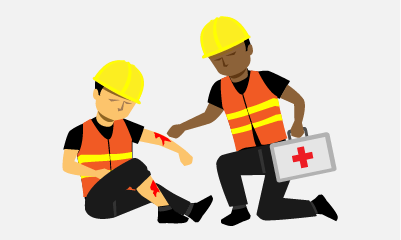Knowing what to do when things go wrong can save lives. From CPR to how to stop serious bleeding, learning life-saving skills is super important. Think of it as having a safety toolbox in your head, ready to use anytime, anywhere.
Whether you’re at the beach, at work, or at home, these skills are your superpowers in emergencies. They’re not hard to learn, and we’re here to make it easy and fun. Read on to learn more about crucial life-saving techniques for an emergent situation.
Cardiopulmonary Resuscitation (CPR)
CPR is a life-saving skill. It helps when someone’s heart stops. You press on the chest and take breaths. It makes the heart pump blood. Anyone can learn CPR. It’s good to know to help save a life. In an emergency situation, knowing CPR can make a difference between life and death.
There are many courses available where you can earn CPR/First Aid certifications. These courses teach the steps to follow in case of a cardiac arrest or respiratory emergency.
Basic First Aid
Basic first aid is useful in emergent situations. You learn to stop bleeding and bandage wounds. It teaches you to treat burns and sprains. Knowing First Aid can help keep someone safe. It’s helpful until doctors come.
Knowing the basics of first aid helps you respond to an emergency situation. Being prepared with basic first aid knowledge can make a huge difference in a critical. Anyone can learn First Aid. You can take classes or learn from this guide.
Water Safety and Rescue
Drowning is a leading cause of accidental death. Knowing how to respond can save lives, whether you’re near a swimming pool, at the beach, or by any body of water. Water is fun but can be dangerous. We must learn to be safe. If you see someone in trouble, call for help.
Wear a life jacket if you cannot swim well. If you find yourself struggling in the water, stay calm and try to float or tread water. Learn how to float and swim. This keeps you safe in the water.
Wilderness and Remote First Aid
Wilderness and remote first aid mastery is very important. It helps when someone gets hurt far from a hospital. You learn to use what is around you to help. For example, you can use a stick as a splint for a broken bone.
You also learn how to stay safe while you help others. This is good to know for hiking or camping trips. These courses such as wound care, fracture management, and emergency evacuation procedures.
Disaster Preparedness
Emergency preparedness training means being ready for bad things like storms or earthquakes. Being prepared means you can better safeguard yourself and assist others. This training teaches you to have food, water, and a first-aid kit. You also learn to make a plan with your family. This includes knowing how to turn off utilities like gas and electricity in case of a disaster.
Master Certified Skills for an Emergent Situation
Mastering certified skills for emergent situations is smart. It helps keep people safe. Learn skills like CPR and first aid. Know what to do when bad stuff happens. This makes you ready to help. It is good for everyone.
You can save a life. And you can be safe when bad things happen. Being prepared is always the best defense against unexpected circumstances. Stay informed, stay trained, and stay ready to help those in need during an emergent situation
Did you find this article helpful? Check out the rest of our blog for more!

